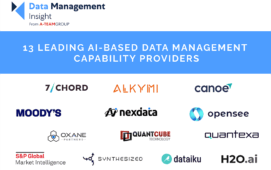FactSet Research Systems announces that it has completed the transition process for collection of the fundamentals database acquired from Thomson Reuters on April 22, 2008.
The acquisition included a copy of the Thomson Fundamentals database, source documents, collection software, documentation, and collection training materials. As per the Transitional Services Agreement, the Thomson update process was terminated on May 4.
FactSet branded the database “FactSet Fundamentals”, which entered the market in 2008. Since then, FactSet has dedicated more than 850 employees to the project, taking major strides to improve the collection system to ensure increased speed, accuracy, reliability and ease of use, and solidifying the database’s place as a preeminent global market data source.
As a result of their independent collection process, FactSet has been able to implement major enhancements, including expanded coverage of the database to more than 62,500 companies and source linking to give clients transparency into the data.
Key differentiating enhancements that have been added to FactSet Fundamentals:
Enhanced view of balance sheet and income statement that includes more granular detail, such as adjustments based on information found in the footnotes and MD&A, to provide insight beyond the traditional standardised items
Calendarised data series that make it easy to align and analyse companies on a comparable basis
Debt capital structure information that provides detailed breakdowns of a company’s financing activity
Restated data that includes important changes to company reports
Dual-listing support that links data to securities that have multiple listings
FactSet Fundamentals is tightly integrated with FactSet’s entity mapping, which allows information collected by FactSet’s proprietary content sets, such as corporate new issues, people, ownership, and estimates, to be incorporated into the Fundamentals data set.
Plus, every FactSet Fundamentals subscription includes access to FactSet Market Aggregates, an aggregation engine that lets clients analyse custom portfolios and indices with the same level of detail and transparency used for security analysis. Clients can access over 20 metrics for more than 2,850 third-party vendors and exchange indices. Benchmarks also include specific sector, industry-group, and industry-level indices.
Subscribe to our newsletter




